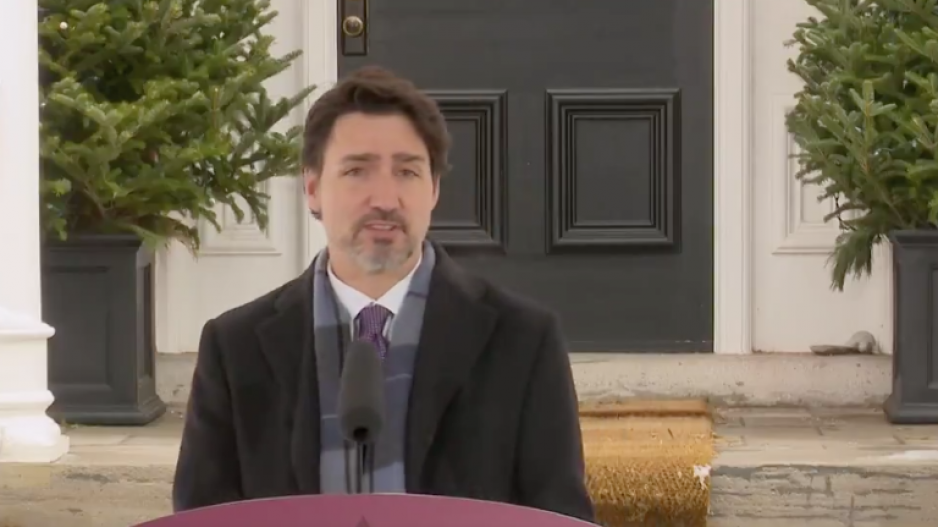American efforts to block shipments of medical supplies to Canada have been met with “productive and positive” conversations, according to Prime Minister Justin Trudeau.
U.S. President Donald Trump last week invoked the Defense Production Act to prevent Minnesota-based 3M Company from exporting medical masks to Canada.
“There are very productive conversations ongoing and we expect those shipments to be delivered,” Trudeau said Monday (April 6) during his daily press briefing outside his home in Ottawa.
Foreign Affairs Minister François-Philippe Champagne and U.S. Secretary of State Mike Pompeo spoke earlier in the day about the quarrel, according to Trudeau.
But the prime minister did not answer directly when pressed if he knew if any shipments had already been blocked following remarks to media by Ontario Premier Doug Ford of such an event.
Instead, Trudeau said he was aware of shipments from countries throughout the world being delayed or not arriving with the expected number of supplies.
“Specifically, with the United States, we are working with them to ensure that the orders Canada has placed get delivered,” he said.
Trudeau has pointed out that the U.S. also depends on trade with Canada for medical equipment, as well as medical staff.
Many nurses who live in Canada commute to the U.S., for example, and Canadian pulp and paper producers, like Harmac Pacific in Nanaimo, B.C., produce the raw materials for things like hospital gowns and masks.
Trudeau dismissed the idea over the weekend of Canada seeking to retaliate against the U.S.
“We continue to have constructive, productive conversations with officials in the American administration who understand that essential services and supplies are very much a two-way street between Canada and the United States,” he said Monday.
Meanwhile, Trudeau acknowledged the Liberals are seeking input from opposition parties on developing a plan for the House of Commons to meet virtually as his minority government pursues what he described as the “biggest economic measures in our lifetime.”
Among them is the Canada Emergency Response Benefit, which saw applications open Monday for those who find themselves out of work as a result of the COVID-19 pandemic.
The CERB offers $2,000 a month to workers for up to 16 weeks and is pegged at a cost of $24 billion.
The measure was introduced as a means to take pressure off the Employment Insurance (EI) system and help self-employed or contract workers, as well as those in quarantine or caring for family member hit by the virus, who would have otherwise fallen through the cracks.
The government has so far processed 1.2 million EI applications received since March 15 through the CERB.
Canadians who apply for direct deposit can expect payments in three to day days, while those receiving cheques can expect payments in 10 days.
The CRA is accepting applications any given day based on the month of someone’s birth.
Those born in January, February or March can apply Mondays; those born April, May or June can apply Tuesdays; those born July, August or September can apply Wednesdays; and those born October, November or December can apply Thursdays.
Applications are open to anyone, no matter the month of their birth, Fridays-Sundays.
Ottawa revealed last week the Canada Emergency Wage Subsidy program would cost $71 billion to cover 75% of wages for workers at organizations suffering 30% declines in revenue year over year.
By keeping more workers on the company payroll, the federal government wants the wage-subsidy program to take pressure off the CERB.
The subsidy was boosted from 10% to 75% last month.
Changes to the subsidy will be backdated to March 15, while the program will run 12 weeks until June 6.
But it might be too late for some capital-starved businesses, with funds from the wage-subsidy program not expected to reach companies for another six weeks.
A new portal will be opening up on the Canada Revenue Agency’s website in the coming weeks for applications to the subsidy program.
The subsidy will cover up to 75% on the first $58,700 an employee earns — a maximum of $44,025, or $847 a week — regardless of the size of the company he or she works.
—With files from Nelson Bennett




